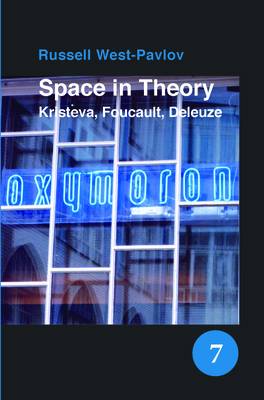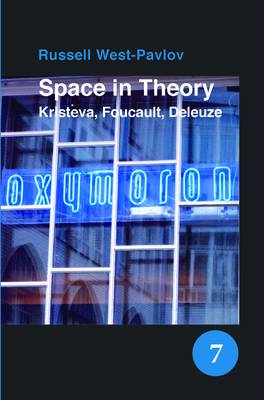
- Afhalen na 1 uur in een winkel met voorraad
- Gratis thuislevering in België vanaf € 30
- Ruim aanbod met 7 miljoen producten
- Afhalen na 1 uur in een winkel met voorraad
- Gratis thuislevering in België vanaf € 30
- Ruim aanbod met 7 miljoen producten
Zoeken
Omschrijving
Space in Theory: Kristeva, Foucault, Deleuze seeks to give a detailed but succinct overview of the role of spatial reflection in three of the most influential French critical thinkers of recent decades. It proposes a step-by-step analysis of the changing place of space in their theories, focussing on the common problematic all three critics address, but highlighting the significant differences between them. It aims to rectify an unaccountable absence of detailed analysis to the significance of space in their work up until now.
Space in Theory argues that Kristeva, Foucault and Deleuze address the question: How are meaning and knowledge produced in contemporary society? What makes it possible to speak and think in ways we take for granted? The answer which all three thinkers provide is: space. This space takes various forms: psychic, subjective space in Kristeva, power-knowledge-space in Foucault, and the spaces of life as multiple flows of becoming in Deleuze.
This book alternates between analyses of these thinkers' theoretical texts, and brief digressions into literary texts by Barrico, de Beauvoir, Beckett, Bodrozic or Bonnefoy, via Borges, Forster, Gide, Gilbert, Glissant, Hall, to Kafka, Ondaatje, Perec, Proust, Sartre, Warner and Woolf. These detours through literature aim to render more concrete and accessible the highly complex conceptulization of contemporary spatial theory.
This volume is aimed at students, postgraduates and researchers interested in the areas of French poststructuralist theory, spatial reflection, or more generally contemporary cultural theory and cultural studies
Space in Theory argues that Kristeva, Foucault and Deleuze address the question: How are meaning and knowledge produced in contemporary society? What makes it possible to speak and think in ways we take for granted? The answer which all three thinkers provide is: space. This space takes various forms: psychic, subjective space in Kristeva, power-knowledge-space in Foucault, and the spaces of life as multiple flows of becoming in Deleuze.
This book alternates between analyses of these thinkers' theoretical texts, and brief digressions into literary texts by Barrico, de Beauvoir, Beckett, Bodrozic or Bonnefoy, via Borges, Forster, Gide, Gilbert, Glissant, Hall, to Kafka, Ondaatje, Perec, Proust, Sartre, Warner and Woolf. These detours through literature aim to render more concrete and accessible the highly complex conceptulization of contemporary spatial theory.
This volume is aimed at students, postgraduates and researchers interested in the areas of French poststructuralist theory, spatial reflection, or more generally contemporary cultural theory and cultural studies
Specificaties
Betrokkenen
- Auteur(s):
- Uitgeverij:
Inhoud
- Aantal bladzijden:
- 276
- Taal:
- Engels
- Reeks:
- Reeksnummer:
- nr. 7
Eigenschappen
- Productcode (EAN):
- 9789042025455
- Verschijningsdatum:
- 1/01/2009
- Uitvoering:
- Paperback
- Formaat:
- Trade paperback (VS)
- Afmetingen:
- 155 mm x 235 mm
- Gewicht:
- 430 g

Alleen bij Standaard Boekhandel
+ 273 punten op je klantenkaart van Standaard Boekhandel
Beoordelingen
We publiceren alleen reviews die voldoen aan de voorwaarden voor reviews. Bekijk onze voorwaarden voor reviews.








